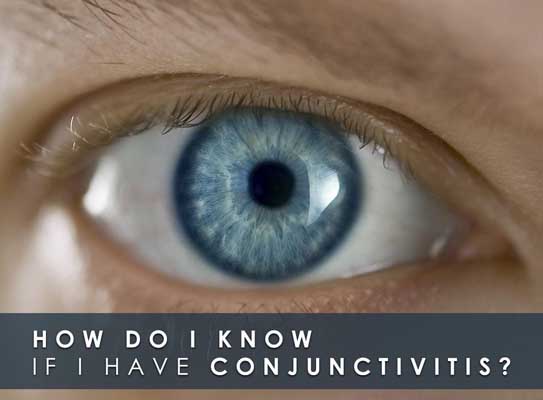How Do I Know If I Have Conjunctivitis?


Conjunctivitis (also known as pink eye) is an inflammation of the clear membrane lining your inner eyelids (the conjunctiva), generally caused by an infection or irritation. The condition is quite common, especially among children and during the warmer months, but can cause serious problems if left untreated. In today’s post, your trusted optometrist at Vienna Eyecare Center answers some common questions about conjunctivitis.


Q: What Causes Conjunctivitis?
There are three types of conjunctivitis: bacterial, allergic, and viral. The bacterial type occurs when certain microorganisms enter your eyes and infect your conjunctiva. Allergic conjunctivitis results from eye irritants like pollen, dust, and other foreign matter finding their way into your eyes. Lastly, the viral type, which is the most prevalent form, occurs when the virus responsible for the common cold enters your eyes.
Q: What Are the Symptoms?
You may feel like something is stuck in your eyes, especially upon waking up. You may also experience a watery, gritty, or even sticky feeling in your eyes, including possible clumping of your eyelashes. The white part of your eye may develop a pinkish/reddish color, accompanied by a heavy, swollen, or even burning sensation. Itchiness is a common manifestation as well. Your expert eye doctor explains that bacterial conjunctivitis can cause your eyes to produce a yellowish discharge.
Q: Is It Contagious?
The bacterial and viral conjunctivitis may easily be transferred to other people, which is why immediate treatment is so important. We suggest maintaining proper hygiene, especially through hand washing, to prevent hand-eye transmission of the eye infection. You may also wear a facemask to reduce the spread of the disease.
Q: How Is It Treated?
The three different forms of conjunctivitis require different methods of eye care treatment. We generally prescribe antibiotics for the bacterial form. The viral form typically clears up on its own without medication—though we can prescribe artificial tear drops to reduce your discomfort, and we also suggest applying a cold compress to the infected eye. When treating allergic pink eye, avoidance of the trigger allergen is a priority. We may also prescribe antihistamines or anti-inflammatory medications to relieve your discomfort.
If you have any further questions about conjunctivitis, call us at (703) 938-7633 or fill out our form.
Recent Posts
Can Contacts Protect My Eyes Against UV?
With summer in full swing, many of us head outdoors to soak up the sun,…
Can Children and Young Adults Develop Cataracts?
It's a common misconception that cataracts only affect the elderly. When discussing eye health issues…
How Is Astigmatism Treated?
Astigmatism represents one of the most common vision issues encountered by individuals, marked by an…
Am I Too Old to Switch to Contact Lenses?
As we age, our vision inevitably changes, often leading to the need for corrective lenses.…
What Is the Optometrist’s Role in Glaucoma Co-Management?
Glaucoma is a leading cause of irreversible vision loss worldwide, known insidiously as the "silent…
Who Is the Ideal Candidate for Ortho-K?
For many individuals grappling with the inconvenience of glasses or the discomfort of contact lenses,…







